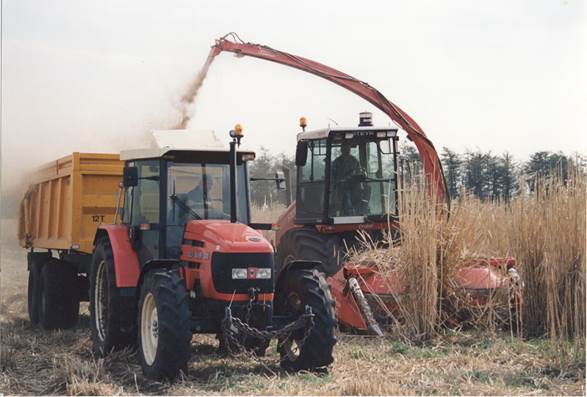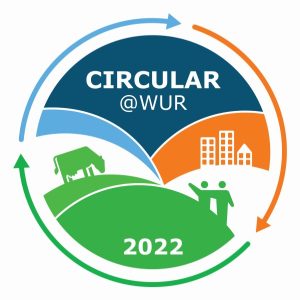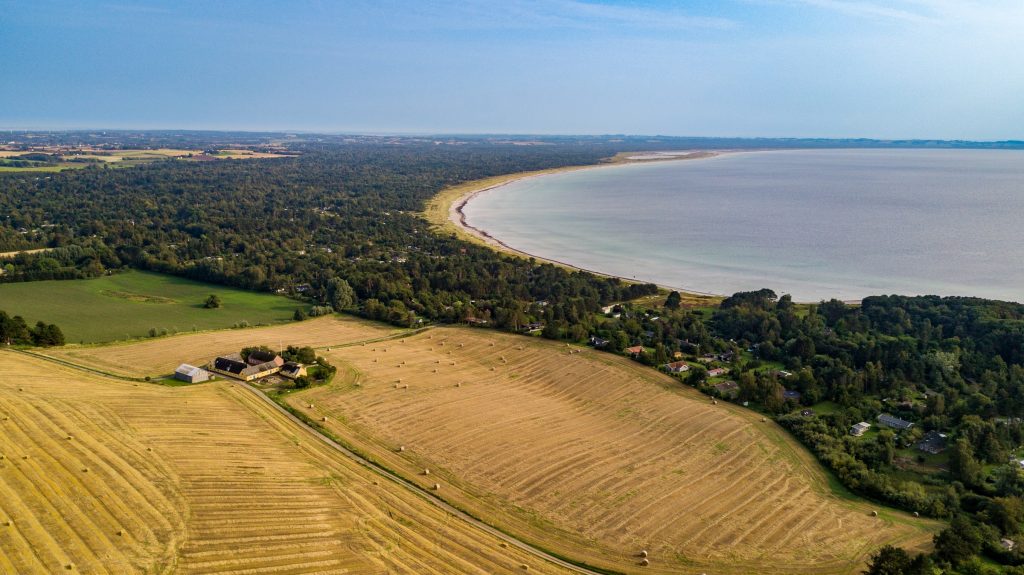The regional government as an ideal partner in achieving a biobased economy: a checklist
Updated 1 February. This article was written by Ingrid Coninx, Berien Elbersen en Joske Houtkamp. Lead photo: Berien Elbersen.
This blog was written with those provinces, businesses and cluster organisations in mind that are working on the further development of the biobased economy in their region. These people often have different goals, ranging from helping entrepreneurs develop and sell biobased products to ensuring the sustainability goals that form the basis of a proper biobased economy are met. The latter includes, for example, reducing CO2 emissions and sustainable nature, soil and water management. The question many of these parties struggle with is: am I doing the right things?
POWER4BIO: the search for ‘the right things’
Within the European POWER4BIO project, Berien Elbersen, Joske Houtkamp and Ingrid Coninx investigated what a regional government should do to provide a region with the best chance to foster a biobased economy successfully. With researchers from the Hungarian Bay Zoltan and AKI they studied leading biobased regions in Europe. The researchers compared the regions, which led to the checklist of ‘the right things’ shown below. Based on the description below, one may see whether a region has already accomplished certain conditions or not. In the latter case, the overview may be used as a source of inspiration to move forward with targeted actions.
1. A strategy based on locally available biomass that matches regional sectors
The government has considered what biomass is available in the region at this time. It has brought together the local entrepreneurs to design a regional strategy on how the available biomass can be optimally deployed in regional production processes. The Chemical Cluster Bayern is one such example. Here, a regional strategy was developed around waste streams from agriculture, forestry and wastewater.
2. Not afraid to set concrete goals and formulate a timeline
A policy plan full of well-meant generalisations is disastrous. Entrepreneurs need clarity on the timeline and on who is responsible for what in order to put a plan into practice. In a clear plan, the goals are measurable and can be monitored. The ideal timeline is two decades or more for a strategy and one decade for the operational plan. This will ensure a clear and continuous plan, which the entrepreneurs need.
3. Being aware of the policy instruments that support the biobased economy, and continuously striving for cohesive policies
Nature policy, manure policy, packaging policy, agricultural policy, water policy and so forth. All of these policy domains affect aspects of the biobased economy. This means that the policy instruments already have an accelerating or decelerating effect on the development of a biobased economy. A decisive government is aware of this and, following an in-depth policy scan, for example, strives to increase coherence between the various policy instruments. This was clearly visible in a Polish region, where none of the policy instruments was labelled biobased, but where the existing policies steered towards achieving a biobased economy.
4. Building upon the national or European government’s policy
Quite a few businesses are wary of investing in a biobased economy because the policies may differ per country within Europe. Therefore, the EU and its policies have a crucial role in fostering coherence between member states and ensure a level playing field for all businesses. Thus, successful regional policies are those policies that match the strategies and instruments provided by the European Union.
5. Using money, collaboration and the exchange of information to steer towards change
Considerable investments are made in research and innovation. This is certainly needed. But frontrunner regions also helped create collaborations and networks between businesses, consumers and knowledge institutes and helped in the exchange of research results. Moreover, they educated people that will work in the future biobased economy. The ideal government offers various types of support for entrepreneurs, and not just funding.
6. A neutral position on technological innovations
If the government position on technological innovations is a neutral one, the market mechanisms can operate without hindrance, which allows for fair government support. The successful Moonshoot programme in Flanders is an excellent example. This programme helps businesses become circular. There were no statements regarding what technological approach was preferred, but businesses were asked to suggest an approach based on their possibilities and resources.

If the government position on technological innovations is a neutral one, the market mechanisms can operate without hindrance, which allows for fair government support. Photo: W. Elbersen.
7. Taking into account the development stage and attuning its support to what the sectors need in the current stage
The ideal government takes into account what stage the biobased economy is currently in: initial stage, growth stage, matured stage. A different type of government support is required for each stage. In the initial stage, there is a need for support in funding research and creating networks and partnerships. During the growth stage, consumer confidence must be boosted, legislation adjusted, and pilots may be run. In this stage, the government should support the entire chain, from biomass suppliers to logistics partners, processing businesses and entrepreneurs marketing biobased products. Particularly the waste, environmental and primary sectors must be included.
8. Using assessment frameworks to reach policy decisions and safeguard sustainability
When the biobased economy takes off, many local entrepreneurs use available biomass. This may put pressure on the environment, which may result in conflicts and environmental deterioration. Carefully considered trade-offs and focusing on win-win situations may prevent this. Assessment frameworks and guidelines help ensure sustainable use and processing of biomass.
9. Never waste a good crisis
A crisis often provides the momentum needed to introduce significant changes. A crisis may occur when civilians are concerned about the environmental impact or when farmers seek new business opportunities. The COVID pandemic and the floods of the Rhine and Maas rivers in the southern Netherlands are examples of such crises. Supporting entrepreneurship in the biobased economy can thus be linked to an urgent societal challenge that has broad societal support, such as climate mitigation or adaptation.
 At the Circular@WUR conference in April 2022, WUR will provide an overview of the latest knowledge about a circular, biobased society. Participants can experience the circular challenge in masterclasses and gain inspiration by visiting the most innovative circular companies in the Netherlands. Relevant, impactful keynote speakers give their inspiring vision. Imke de Boer and Hans van Meijl from WUR, and guest speakers such as Jaqueline Cramer (Utrecht Sustainability Institute), Helmut Haberl (University of Natural Resources and Life Sciences Austria) and Bob Hendrix (Chief Commercial Officer at ABN AMRO Investment Solutions Keynote). Read more.
At the Circular@WUR conference in April 2022, WUR will provide an overview of the latest knowledge about a circular, biobased society. Participants can experience the circular challenge in masterclasses and gain inspiration by visiting the most innovative circular companies in the Netherlands. Relevant, impactful keynote speakers give their inspiring vision. Imke de Boer and Hans van Meijl from WUR, and guest speakers such as Jaqueline Cramer (Utrecht Sustainability Institute), Helmut Haberl (University of Natural Resources and Life Sciences Austria) and Bob Hendrix (Chief Commercial Officer at ABN AMRO Investment Solutions Keynote). Read more.

